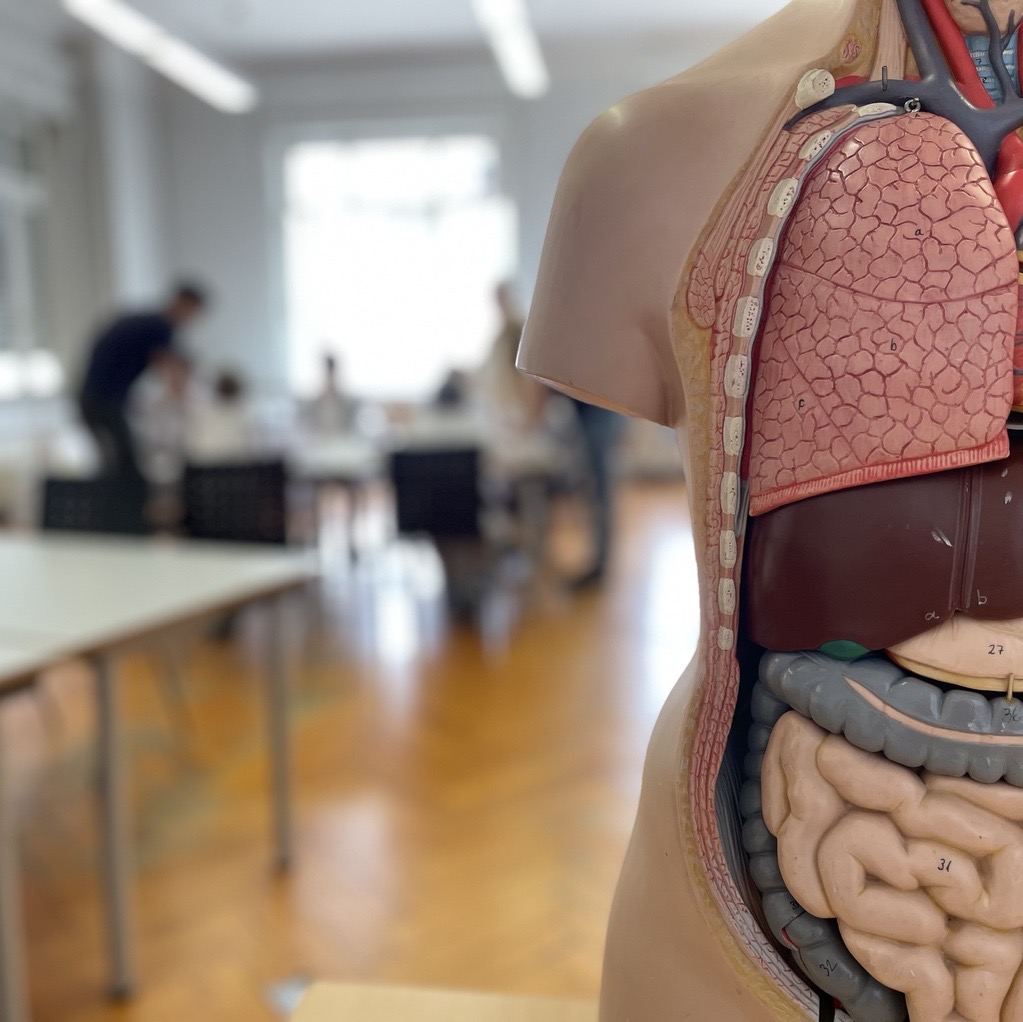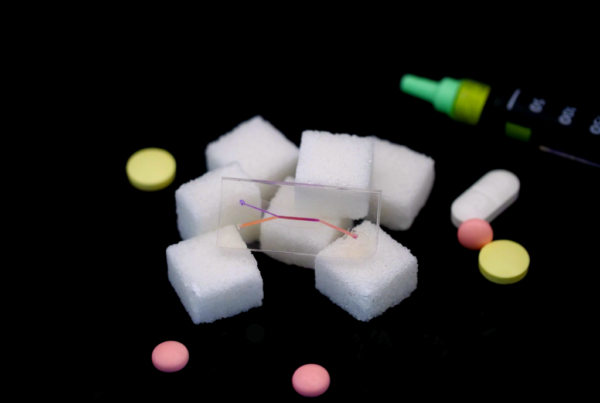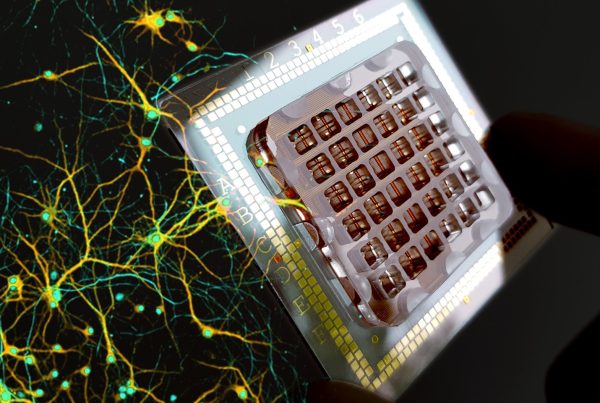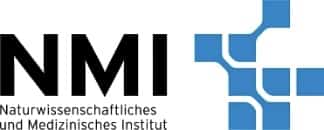How Mini-Organs help us understand the human Body and its Diseases
What exactly are organs? What role do they play in our bodies? How do illnesses affect us? And, most importantly, how can mini-organs contribute to our comprehension of the human body and its diseases? These intriguing questions were explored on July 1, 2023, during the Children’s University Research Day held at the 3R-Center Tübingen, organized by the Eberhard Karls University of Tübingen.
With a sense of curiosity and adorned in mini lab coats and safety goggles, young researchers gathered in the historical auditorium of the Old Anatomy building for an engaging children’s lecture. Here, they were introduced to the fundamental principles of working with organ-on-chip systems. Behind this term lies a groundbreaking concept of 2 €-coin-sized plastic chips that facilitate the culture of tiny mini-organs. These systems offer researchers profound insights into the structure, function, and potential ailments of various organs, ultimately leading to the development of therapeutic medications.
Following the lecture, children aged six to 12 had the opportunity of delving into the captivating realm of organ-on-chip technology and its vital role in biomedical research. Guided by supervisors from the 3R-Center and the µOrganoLab, the young participants explored three stations that revealed the locations and functions of different organs in the human body. Additionally, they had the exceptional opportunity to perfuse an oversized organ-chip with diverse colored solutions, each representing essential nutrients like amino acids, carbohydrates, or vitamins. At the third station, young scientists showcased their detective skills by using microscopes to uncover hidden symbols in the chips.
Witnessing the world of science through the eyes of these enthusiastic children was truly inspiring. Their eagerness as they navigated through all the stations, asked thoughtful questions, and hungered for more knowledge was remarkable.
Children’s University Research Days offer an incredible and unparalleled chance for young explorers to immerse themselves in the captivating world of science. These events not only foster interactive and playful learning of diverse subjects across various knowledge domains, but also challenge seasoned scientists to present their complex research fields and topics at a level accessible to children. The significance of such events extends beyond nurturing early interest in natural sciences, technology, and other academic disciplines; they also nurture curiosity, creativity, and critical thinking. These positive experiences may very well inspire and motivate future generations of researchers to dedicate their talents and passions to the pursuit of scientific advancement.
We extend our heartfelt gratitude to all the young explorers who participated, the dedicated course instructors, and, of course, the University of Tübingen for making this day a resounding success. We eagerly anticipate the next Children’s University Research Day, where the 3R-Center Tübingen will once again be in the capable hands of our aspiring young scientists.
Contact for Media Inquiries
Name: Dr. Silke Keller
Email: 3rcenter@uni-tuebingen.de
Phone: +49 7071 29 73667








